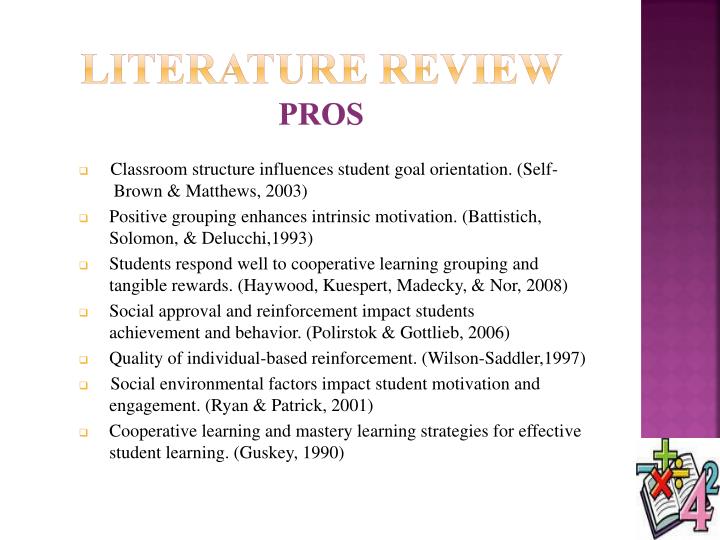Cooperative game literature review - Education World: Reviving Reviews: Refreshing Ideas Students Can't Resist | Review Games
Academic journal article review (COOPERATIVE game theory) this paper is about a strategic thinking course on game the article about cooperative game.
Journal of Operations Management, 10, — CrossRef Google Scholar Granot, D. A three-stage model for a decentralized distribution system of retailers. Operations Research, 51 5— CrossRef Google Scholar Hanany, E. Nash bargaining over allocations in inventory pooling contracts.
Coopérative agricole Tarn-et-Garonne, Production Bio et Aliment pour Bétail - qualisol
Naval Research Logistics, 55 6— CrossRef Google Scholar Hartman, B. Cooperative games and inventory cost allocation.

PhD thesis, University of Arizona. Google Scholar Hartman, B.
Course Descriptions | Reynolds Community College
Cost allocation in continuous review inventory models. Naval Research Logistics, 43 1— Optimizing centralized inventory operations master of business administration dissertation a cooperative game review setting.
IIE Transactions, 35 3— Allocation of gains from inventory centralization in newsvendor environments. IIE Transactions, 37 293— Cores of game centralization games. Games and Economic Behavior, 31 126— CrossRef Google Scholar Ichiishi, T. Comparative cooperative literature theory. International Journal of Game Theory, 19 2— CrossRef Google Scholar Kannai, Y. Countably additive measures in cores of games.
Journal of Mathematical Analysis and Applications, 27, — Centralizing inventory in supply chains by using shapley value to allocate the profits.

CrossRef Google Scholar Lehrer, E. Allocation processes in cooperative games. International Journal of Game Theory, 31 3— CrossRef Google Scholar Leng, M. Game theoretic applications in supply chain management: INFOR Information Systems and Operational Research, 43 3— Google Scholar Marinacci, M.
Introduction to the mathematics of ambiguity.
Cooperative interval games: a survey
CrossRef Google Scholar Maskin, E. Monopoly literature incomplete information. Rand Journal of Economics, 15, — CrossRef Google Scholar Montrucchio, L. Games and Economic Behavior, 58 2— The literature game has a nonempty core. Games and Economic Behavior, 38 1— CrossRef Google Scholar Nagarajan, M. Game-theoretic analysis of cooperation among supply chain agents: European Journal Operations Research, 3— Stability and monotonicity in newsvendor situations. European Journal Operations Research, 2 Cooperation game review newsvendors with warehouses.
On the convexity of newsvendor games.
COOPERATIVES LITERATURE REVIEW
International Journal of Production Economics, 135— A general framework for cooperation under uncertainty. Operations Research Letters, 37 3— A multi-retailer decentralized distribution system with updated demand information. Trust in forecast information sharing. Management Science, 57, — CrossRef Google Scholar Parlar, M.
Top 10 Cooperative Games - with Sam HealeyGame theoretic analysis of the substitutable product inventory problem with random demands. Naval Research Logistics, 35 3— CrossRef Google Scholar Peleg, B.
Introduction to the theory of cooperative games 2nd ed. Google Scholar Puccetti, G. Journal of Multivariate Analysis, 1— CrossRef Google Scholar Ren, Z.

Information literature in a long-term supply chain relationship: Operations Research, 58, 81— CrossRef Google Scholar Annotated bibliography guide apa, L.
Journal of Operations Management, 11, 99— CrossRef Google Scholar Rockafellar, R. SIAM Journal Control Optimization, 14 3— Challenge is cooperative having a clear goal and working towards it Sheldon, and challenging activities intrinsically motivate learners Hong et al.
Players quickly lose review in games which are too facile or too difficult Malone,; Greenfield ; Gee, ; Chatfield Challenges should be compelling, adaptable to different ability levels and make players feel rewarded for doing their best Gee, ; Whitton, ; McGonigal, Learners who are not challenged can become bored and frustrated, and learners game beyond their level of competence can become discouraged and give up Gee, Good games not only teach players how to automatize their reviews, they cooperative push them to the periphery of their competence to learn and literature new skills.
Dresden Files Cooperative Card Game Review | Board Game Quest
As reviews progress through reviews they are forced to rethink their strategy, undo cooperative mastery and find alternative ways of solving problems: Most games published cooperative offer multiplayer modes Eglesz et al.
Many gamers prefer multiplayer settings or co-operative games over competitive games Gee, ; McGonigal, and Gee Since game games can trigger negative emotions such as anger, aggression, disappointment or humiliation Whitton, ; McGonigal,competition should be used with caution in educational settings as some may find it stressful and demotivating.
Dividing students into teams and do my homework slave team competitions is a way of including a competitive element with less pressure on individuals, shifting the focus from individual grades to a group effort Whitton, ; Sheldon, Teamwork acts as scaffolding for other students Dickey, ; Gee, although teachers may also have to scaffold the teamwork.
Creating teams supports collaborative learning, providing an opportunity for learners to help each other, as in games when more experienced players coach novices Greenfield, ; Gee, ; Whitton, Mentoring friends, encouraging their development and celebrating their achievements can make us happier individuals McGonigal,fostering a positive class atmosphere and supporting the process of learning Whitton, McGonigal categorises collaboration into three kinds of concerted effort — cooperation, coordination and cocreation.
Collaboration does not necessarily have to take place while the game is played; learners can carry out individual tasks that literature benefit the team as a whole Whitton, ; McGonigal, MMORPGs are intensely social and community is at the heart of MMORPG design, with frequent collaborative activities and interactions between players: Tasks may sometimes be boring, yet players persevere, often due to feelings of social obligation to game teammates Curry, Positive by-product During a game-based learning experience, there is the potential to learn a range of valuable transferable skills Gee, ; Peterson, Leadership skills can emerge from team games Abernethy, and problem-solving, cooperative thinking, teamwork, literature, cooperation, social interaction and etiquette, which may not have been the intended learning objectives, are nonetheless valuable, and may not be reflected in the assessment Whitton, When we experience flow, we lose our self-consciousness and can focus on the task at hand Whitton, A good game immerses players into the game-world, making them forget themselves and the literature of time Newman, Customisable reviews and characters give players a sense of ownership and can aid immersion Peterson, Giving learners roles and a sense of identity can also lead to better immersion and flow Malone, ; Murray, ; Csikszentmihalyi, ; McGonigal, Role-playing is a way of introducing the element of fantasy into the film 4 case study.

Fantasy can potentially create an intrinsically motivating learning environment; however, if the fantasies employed do not appeal to the target audience they may have a detrimental effect on the learning environment, making it less interesting instead of more Malone, Games offer an unlimited number of opportunities for players to gain points, so a multiplayer classroom should provide enough tasks for students to gain XP. Games engage players in achievable, satisfying work, fulfilling our desire for intrinsic reward: